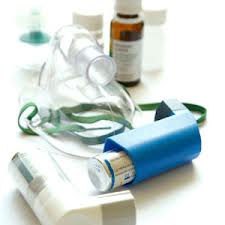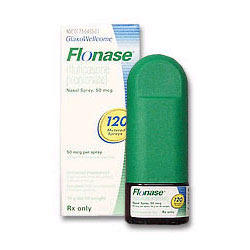 Asthma is a serious illness that can be very well controlled with asthma medication. Many people who have asthma attacks experience bronchospasms, which make it difficult to breathe. Alupent is a medication delivered by an inhaler, which is used to relieve bronchospasms. Bronchospasms occur in people with asthma, as well as with chronic obstructive pulmonary disease (COPD).
Asthma is a serious illness that can be very well controlled with asthma medication. Many people who have asthma attacks experience bronchospasms, which make it difficult to breathe. Alupent is a medication delivered by an inhaler, which is used to relieve bronchospasms. Bronchospasms occur in people with asthma, as well as with chronic obstructive pulmonary disease (COPD).
Alupent can be used by individuals that are 12 years old and older, who suffer from asthma symptoms and other lung problems that cause narrowing of the airways. Alupent is a good rescue inhaler, because it works very quickly to treat bronchospasms. To treat bronchospasms you need to take 2 to 3 puffs, or as directed by your physician. It is important that you use the Alupent inhaler only as directed by your physician. Don’t use more often than prescribed, because you may experience serious side effects.
You can expect to feel a little shaky after taking your puffs of Alupent. You may also cough a few times when you inhale the drug. Other side effects include nervousness, nausea and vomiting. Other side effects may be dizziness, rapid heartbeat, chest pain, and itching. If severe dizziness or trouble breathing is experienced, you should contact your health care practitioner.
 Many people who have asthma are prescribed an oral medication, called Breathine (Terbutaline). Breathine is a very effective drug that helps to decrease wheezing, and relieve shortness of breath. This drug is also used to treat other respiratory diseases that cause wheezing, such as chronic obstructive pulmonary disease (COPD), emphysema, and bronchitis. Breathine is a bronchodilator, which helps to relax the smooth muscles in the branches of the bronchial tubes, which makes it easier to breathe.
Many people who have asthma are prescribed an oral medication, called Breathine (Terbutaline). Breathine is a very effective drug that helps to decrease wheezing, and relieve shortness of breath. This drug is also used to treat other respiratory diseases that cause wheezing, such as chronic obstructive pulmonary disease (COPD), emphysema, and bronchitis. Breathine is a bronchodilator, which helps to relax the smooth muscles in the branches of the bronchial tubes, which makes it easier to breathe.
As with all asthma medications, there are some possible adverse effects, though it is usually well tolerated by most people. Breathine, being a bronchodilator, the most common side effects are tremor, nervousness, headache, and dizziness. It is also possible that you might feel drowsy taking this drug. Serious drug reactions such as irregular, fast, or pounding heartbeat, weakness, chest pain, muscle cramps, or seizures should be reported to your doctor immediately. Your doctor will advise you about whether to continue or stop the drug.
Another very useful drug used in the treatment of asthma is the Flovent HFA inhaler. Flovent (Fluticasone) is a steroid medication that is administered directly to the inside of the lungs and bronchial tree. Flovent is not a rescue medication; the inhaler must be used regularly as directed by your physician. This drug is effective to prevent asthma symptoms and to improve lung function. Flovent is also used in other respiratory illnesses, such as emphysema, COPD and bronchitis.
 To use the Flovent HFA inhaler correctly, you must shake the canister well to mix the contents before using. Use the inhaler as directed by your health care practitioner. If your doctor prescribes 2 puffs, take one puff and wait for about one minute before taking the next puff. It takes about a week or two for Flovent to make a significant improvement in your asthma symptoms. The Flovent inhaler reduces the inflammation that occurs with chronic asthma.
To use the Flovent HFA inhaler correctly, you must shake the canister well to mix the contents before using. Use the inhaler as directed by your health care practitioner. If your doctor prescribes 2 puffs, take one puff and wait for about one minute before taking the next puff. It takes about a week or two for Flovent to make a significant improvement in your asthma symptoms. The Flovent inhaler reduces the inflammation that occurs with chronic asthma.
It is important to rinse your mouth after using the Flovent inhaler. Because it is a steroid, there is a possibility that your mouth and throat could get dry. There is also a chance that you could develop thrush, a yeast infection in your mouth. Rinsing your mouth out after each use will prevent that from happening. Be sure not to swallow before rinsing your mouth. Don’t swallow the rinse either, because you don’t want to swallow the steroid into your stomach. In the lungs, the steroid from the Flovent HFA inhaler will not enter into the body, as long as you don’t swallow before rinsing your mouth.
Obviously, there are many drugs that are used for the treatment of asthma, too many to be included in this article. By taking your meds as ordered and living a healthy lifestyle you should be able to live a healthy life free of serious asthma symptoms. Many people who have asthma are controlled by drugs similar to these. Most people use a rescue inhaler as needed, and take an asthma medication by mouth. Aside from the rescue in haler, and the daily tablet, most people have a maintenance inhaler similar to the last one mentioned in this article.
Related Articles
